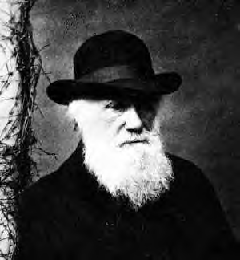[cross posted at Liberty & Power]
Joseph Sobran suggests (conical hat tip to LRC) that people’s willingness to help or praise others refutes Darwinism and atheism, and defies Randian egoism. Let’s take these in turn.
 Darwinism: Sobran seems to imagine that if Darwinism were true, people would be interested solely in their own narrow survival and would have no genuine concern for others. This is wrong on two different levels.
Darwinism: Sobran seems to imagine that if Darwinism were true, people would be interested solely in their own narrow survival and would have no genuine concern for others. This is wrong on two different levels.
First, Sobran mistakenly assumes that Darwinism commits us to holding that all our mental contents, all our beliefs and desires, are there solely because they promote survival. Yet Darwinism implies nothing of the kind. Natural selection explains our possession of various capacities for learning, choosing, being influenced; but natural selection by itself does not guarantee that these capacities will be exercised solely in survival-conducing ways. How could it? My belief that 666 is the square root of 443556 isn’t there because that belief has survival value; there may be cases where it would, but I doubt that it ever has. Instead my belief that 666 is the square root of 443556 is the product of a general capacity to figure things out (i.e., reason), and that capacity has survival value.
Second, even if Darwinism did imply that all our mental contents are directly explainable by natural selection, it still wouldn’t follow that we should be surprised at the existence of genuine other-concern. Suppose (and this does not seem to be an especially heroic assumption) that creatures who are inclined to cooperate with one another are more likely on average to survive than those who aren’t. What more does one need by way of an evolutionary explanation? Has Sobran never read Spencer? Or Darwin himself?
Sobran thinks it should be a puzzle for the Darwinian why human beings express varieties of concern that other animals lack. But he himself offers the answer: reason. And as I noted above, this is a perfectly Darwinian-compatible explanation.
The weirdest section of Sobran’s article comes when he suggests that “killing your own children” (this is Sobran’s tendentious description of abortion; he seems to have forgotten that before a woman has given birth she has no “children”) “makes some sort of sense from an atheistic and Darwinian point of view,” since “[i]f survival is a ruthless competition, your kids are your competitors.” Um, Darwinian natural selection promotes traits that enhance the likelihood of reproduction; survival is selected for only insofar as it promotes reproduction. (Of course we can outwit natural selection, and a good thing too; the view, mysteriously popular among many religious conservatives, that we should bow to the purposes of our genes surely contradicts Genesis 1:26.)
Atheism: I was initially puzzled as to how Sobran’s argument was supposed to be relevant to atheism, until I realized that he is treating atheism and Darwinism as equivalents. But they aren’t. One can be a Darwinian without being an atheist (for this we have the assurance of no less an authority than Pope John Paul II), and one can likewise be an atheist without being a Darwinian (as all atheists were, prior to the 19th century, and as many have been since).
Randian egoism: Sobran treats Randian egoism as though it counseled against genuine concern for others. But Randian egoism says no such thing; its conception of self-interest is modeled on Aristotelean eudaimonia, and most definitely includes various forms of other-concern. There is a dispute in Randian circles as to whether such concern is related causally or constitutively to self-interest; but such concern remains genuine in either case. Egoism is a doctrine of the ground of our legitimate concerns, not of their scope. If egoism is Sobran’s basis for rejecting Rand, he should reject Thomas Aquinas for the same reason.